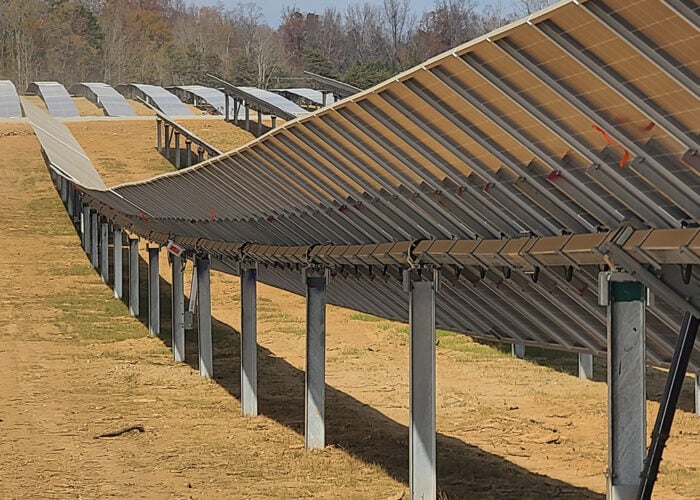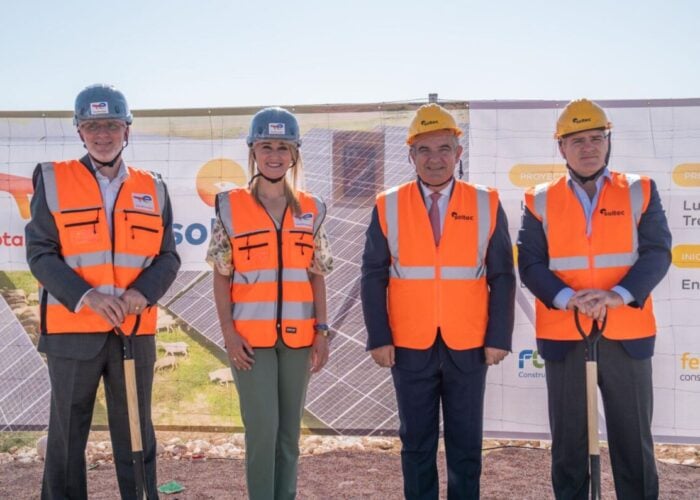Sanctions including the withdrawal of feed-in tariff (FiT) certification are being considered by the Japanese government for PV projects that have been approved under the country’s FiT but remain unbuilt, PV Tech has learned.
Japan’s Ministry of Economy, Trade and Industry (METI) has launched an investigation into why only around 10% of large-scale PV projects approved under the FiT have so far been connected to the grid system.
Unlock unlimited access for 12 whole months of distinctive global analysis
Photovoltaics International is now included.
- Regular insight and analysis of the industry’s biggest developments
- In-depth interviews with the industry’s leading figures
- Unlimited digital access to the PV Tech Power journal catalogue
- Unlimited digital access to the Photovoltaics International journal catalogue
- Access to more than 1,000 technical papers
- Discounts on Solar Media’s portfolio of events, in-person and virtual
A survey expected to last around a month was launched on 22 September examining projects larger than 400kW capacity. METI said the investigation was a “fact-finding” survey to establish why such a small proportion of approved projects had been completed.
Various reasons have been cited for the lack of movement, including grid connection problems – Japan has a regionally demarcated grid system, with 10 different companies responsible for the grid in different areas. Hokkaido, the largest of the island territories to the north of Japan where land is in relatively abundant supply, is unable to connect more than about one in four approved projects to the grid due to connection problems and oversupply.
But METI suspects other factors are at play, including developers deliberately delaying projects in the hope that equipment costs will come down.
Speaking to PV Tech, Takashi Kitamura of the New Energy Policy Division at METI’s Agency for Natural Resources and Energy Conservation and New Energy Department, acknowledged that a large number of projects remained unbuilt.
Explaining that because once a project has been approved by the government and then by the utility company responsible for the corresponding section of grid, developers must then evaluate their own costs before breaking ground, Kitamura said it was possible that companies may then decide to wait on falling equipment prices before beginning construction, in order to improve profit margins.
Kitamura also said he had heard anecdotal, but as-yet unsubstantiated rumours, that some companies may be brokering deals to effectively subcontract projects out to smaller developers.
Describing the current investigation as a “fact-finding survey”, Kitamura said METI would consider what measures should be taken once the survey was completed. It is scheduled to finish on 18 October. The survey would be taking into account the situation of each company involved in project development and asking each for details including the state of finances, he said.
PV Tech understands that the survey will seek to define the status of individual projects and the willingness of developers to give up unbuilt projects.
Those developers that are unwilling to give up projects but have not yet started building them will be asked to report on when they plan to begin construction.
They will also have to provide documentation proving they have ordered components and evidence of land purchase or lease agreements. Until December 2012 a project could receive approval without land purchase or lease agreements, and this is thought to be another possible factor behind the high number of unbuilt projects.
But it appears that METI is keen to not rush to judgement. Kitamura said the survey may find that some companies had simply run out of resources or were otherwise unable to finish projects in unfortunate circumstances despite the will to continue.
However if it was the case that projects were intentionally delayed or corruption had taken place, Kitamura said METI would then have no choice but to consider what measures were to be taken.
While he stressed that METI would not announce or consider enacting any possible punitive measures until survey data was collated, if it was found to be beyond doubt that developers or investors were intentionally stalling on projects, various sanctions could be considered.
This could ultimately include revoking certification given under the FiT scheme, although again Kitamura was at pains to emphasise that the outcome would depend on the full results of the survey.
Additional reporting by Ben Willis.







